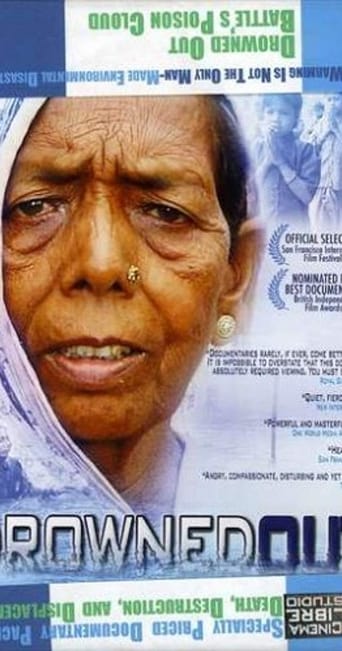runamokprods
Very good, if not quite great, this documentary about poor villagers being cruelly displaced by a massive dam project in India has some emotional and powerful moments. There's no pretense of objectivity here – this is a film with a point of view, and it expresses it strongly. The weak spots are a certain sense of repetition, and a back of the mind feeling that good and bad might be a bit more complex than shown here – we're asked to take some of the film's assertions on face value, without question or rebuttal. None-the-less, a moving and sadly inspiring film.
SipteaHighTea
What is fascinates me about this film is how the Indian engineers fail to determine how much damage was cause when the dam was build. They use a computer software programs to give different situations regarding water flow, speed of the water, etc. and yet they still underestimate how much damage was cause by the dam in terms of people being displaced, how much land was going to be underwater, how many people lost their livelihood after the dam was built, the river traveling in a different direction after the dam was finished, and whether the dam ever achieve its objective of bring water to the dry lands that it was suppose to have done. For people who have math and science degrees, it shows how pretty stupid they were despite the fact that some of them were probably the cream of the crop of India's engineering corp.
hoorayproductions
Drowned Out is the inspiring story of the struggle made by the sustainable farming communities of Jalsindhi in central India who are evicted by their government and the World Bank, in what evidently appears to be to supply the next generation of sugar cane factories with water. The message is clear; relocate to the slums of the city, accept an infertile patch at a crowded resettlement, or wait for the mammoth Narmada Dam to flood their homes, and ancestral lands. Defiantly, they choose the latter. This is just one story of the millions that have been displaced by dam construction in India in the last half century, to the tune of huge profits for some, and hunger, heart break, lengthy court cases and police brutality for most. Franny Armstrong's masterpiece vibrantly captures the human drama and the rich lives of vanishing tribal communities, and shows the touching reality of these people's unbreakable spirits in the face of adversity, and own fragile mortality. Those who have suffered an injustice such as this deserve recognition, and so does this film.
bmaxpower
Visionary documentary making. Franny Armstrong, director of McLibel, continues the resistance against global iniquity with a story of individuals forcing ruthless greedy bureaucrat's to consider the humanity behind dollar signs and statistics.Warning potential spoilers follow.To first have an argument you must have something to say, and this piece sure has opinions. But this is not the one-sided emotional rhetoric that we are often used to hearing. This documentary considers both sides of the argument for massive infrastructure projects like dam building, and after the beginning section I am probably not the only one left wondering whose side the film is on. Though it has its own agenda, in the end the viewer can only side with experts from the film, like the official from the World Bank who belatedly conceives the corruption his organization in involved with and joins the struggle to halt the dam. The poster's tagline should be if you don't ask questions you will not see just how much you are being deceived and exploited. Prepare to be shocked and to reconsider all those grandiose schemes your own government wraps in the cotton wool label of development. Beautifully structured, with a troupe of characters that will leave all but the most adamantine wondering at the courage of ill-equipped villagers taking on the legendary bureaucracy of the Indian government. When the world does change it will have been efforts like this that broke down the first bar of the cell.
